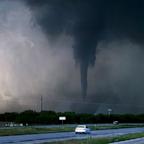Diversification eases stock losses but can't stop them
— -- You diversified your portfolio, spreading your risk between U.S. and international stocks, high-quality bonds and low-quality bonds. Your portfolio still got stomped.
Is it time to re-think diversification strategies?
No. But it's a good time to make sure you're really diversifying your portfolio — and that you're not making your diversification play into a core holding.
When you diversify, you spread risk among several different types of investments. And diversification is a good strategy.
Don't believe it? Ask someone whose entire retirement plan was in Bear Stearns stock. Or in Lehman Bros. stock.
"Puh-leeze," says Richard Thaler, professor of economics at the University of Chicago. "Any mutual fund is more diversified than the company you work for."
And while stock mutual funds fell a staggering 37.5% last year, many individual companies fared far worse, says Howard Silverblatt, senior analyst at Standard & Poor's. He counts 256 stocks in the S&P 500 that performed worse than the index — and that's just among companies that have survived. AIG, for example, tumbled 97.3%, and General Motors plunged 87%. Only a handful of S&P 500 stocks actually turned in a gain last year.
Worth the trip?
Clearly, holding a diversified stock fund is better than gambling on an individual stock. But what about other diversification plays?
Consider international funds, which have tumbled even more than U.S. funds. For example, the average international large-company core fund fell 44.5% last year, vs. 37.2% for the average U.S. large-company core fund. ("Core" funds are those that look for the stocks of growing companies selling at a reasonable price — a common stock-picking strategy.)
Going overseas brought you nothing but sorrow last year. Should you give it up as a strategy?
No, but perhaps you should tone it down, says Robert Doll, chief investment officer of BlackRock. "Correlations have moved up a lot."
Foreign stocks tend to move in lockstep with U.S. stocks these days — particularly when the markets are down. If the Dow Jones industrial average falls 500 points in a day, you can bet that Japan's Nikkei average is going to have a bad day, too.




